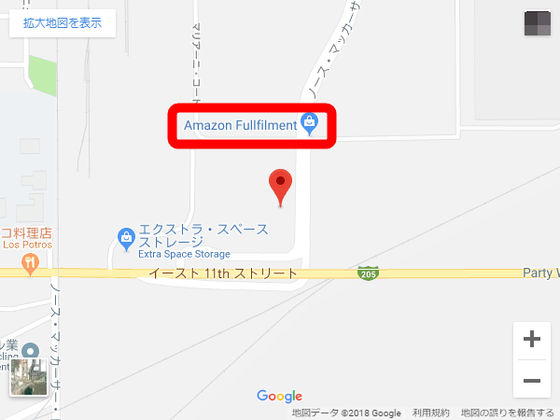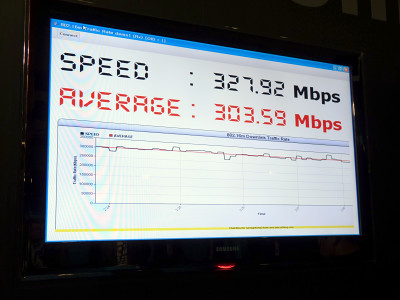Possibility Amazon is impersonating the latest technology test impersonating as a massage spa

by Christian Wiediger
According to a permission application for experiments submitted to the Federal Communications Commission (FCC) which regulates and supervises the broadcasting business in the United States, Amazon is trying to test hundreds of state-of-the-art wireless devices. And IEEE Spectrum reports that this test may be carried out secretly by Amazon at three facilities owned by Silicon Valley. According to the IEEE Spectrum, the three facilities that Amazon is using for testing are two buildings owned by " Amazon Lab 126 " that will advance the secret research of the company and one of Amazon's delivery centers in Silicon Valley He is pretending to be a massage spa or community center in the area.
Amazon May Be Hiding Its Plans to Test New Wireless Tech by Masquerading as a Massage Spa - IEEE Spectrum
https://spectrum.ieee.org/tech-talk/telecom/wireless/amazon-may-be-hiding-its-plans-to-test-new-wireless-tech-by-masquerading-as-a-massage- spa
On November 19, 2018, a company called Chrome Enterprises tested up to 450 prototype devices using " CBRS ", a new technology aimed at providing ultra high speed wireless broadband at shared radio frequency . In CBRS, by using the 3.5 GHz band radio frequency that FCC had secured in advance for military use, it is to realize wireless communication that is faster and more reliable than Wi-Fi. And with CBRS's high-speed communication, new IoT applications can be realized in places such as offices, hospitals and factories.
Up to 150 stationary units and up to 300 mobile units were used in the test, and it seems that trials were conducted at three places, Cupertino, Sunnyvale and Tracy. Large companies such as Comcast, Nokia, and Verizon are also testing CBRS before Chrome Enterprises, but IEEE Spectrum says, "In the test of CBRS in a public place approved by FCC that we were able to verify, Chrome The thing that Enterprises did was the largest scale. "

by Joshua Sortino
Despite being doing such a large scale test, if I looked into Chrome Enterprises, IEEE Spectrum wrote, "It was a strange thing to exist on paper." The company's address is in the office building on the outskirts of Georgia, and Chrome Enterprises is founded in 2017 in Delaware state where corporate confidentiality regulations were severe. Also, Chrome Enterprises' email address is from a free Yahoo.com account.
However, the documents submitted to the FCC are hiding hints on what kind of companies are behind Chrome Enterprises. In the submitted documents, we need to designate three places on the test candidate site, but we do not need to perform the test at the place we actually specified, and if we do the test within the radius of 2 km from the designated place it is OK That's right.
The three places designated by Chrome Enterprises in the submission were Cupertino / Sunnyvale Tracy's massage spa and community center. When drawing a circle with a radius of 2 km from each of these places, I can find Amazon facilities, so IEEE Spectrum guesses that the experiment is done by Amazon.
The Sunnyvale address that Chrome Enterprises has designated in the submission form is here. Just around the corner there is the Amazon Lab 126 headquarters that developed devices such as Kindle, Fire TV, Echo.

The address of Cupertino designated by Chrome Enterprises in the submitted document. It is within 500 meters from the Amazon Lab 126 building called "SJC 3".

In addition, the address of Tracy specified in the submission form is here. There is Amazon's delivery center in front of you. Since countless automatic robots are running in Amazon's delivery center, it seems to be perfect for testing CBRS using countless mobile units and fixed units.

Also, the documents submitted by Chrome Enterprises to the FCC were written by the same Washington, DC attorney as Amazon wrote the documents filed with the FCC earlier. In a certain section, contents of Amazon's submission documents are copied as it is.
If Amazon produced a company called Chrome Enterprises for testing CBRS and deliberately stated the address to conduct the test, the FCC would "punish the applicant to intentionally make a false statement" It seems that it is also possible to cancel the permission of the experiment or impose a fine because it is possible.
Although IEEE Spectrum is requesting comments from FCC, Amazon, Chrome Enterprises, it seems that no reply has been obtained.
Related Posts:
in Hardware, Posted by logu_ii







